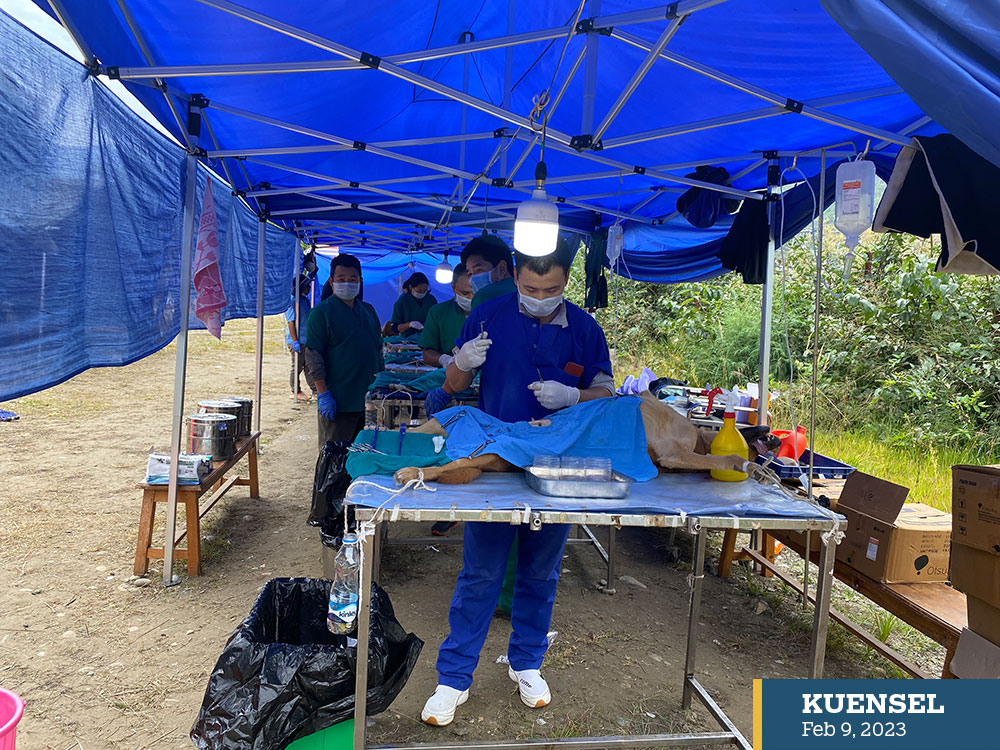Chhimi Dema
Trashiyangtse, Haa, and Lhuentse have achieved 100 percent sterilisation of free-roaming, unowned dogs following the Nationwide Accelerated Dog Population Management (NADPM) and Rabies Control Programme (RPC).
The achievement means that the free-roaming and unowned dogs in the dzongkhags have been neutered and vaccinated against rabies.
NADPM’s leader and head at the National Veterinary Hospital, Dr Kinley Dorji, said that a standard operating procedure is in place before a dzongkhag can declare an achievement mark of 100 percent.
The gewog administrations and livestock sector declare the status first and then put it up to the dzongkhag administration for a reliable record.
The dzongkhag administrations compile the declaration from the gewogs and submit them to the NADPM programme.
NADPM programme approaches His Majesty’s Secretariat to deploy an independent team of de-suups to visit the dzongkhag for assessment.
Only 10 days are given to conduct the assessment according to the SoP.
Trashiyangtse submitted the declaration on November 24 last year and was confirmed on December 25 that the dzongkhag had achieved 100 percent sterilisation of free-roaming, unowned dogs.
Haa submitted a declaration on November 25 last year and was declared 100 percent sterilisation of free-roaming, unowned dogs on December 27.
Lhuentse was declared 100 percent sterilisation of free-roaming, unowned dogs on January 31 this year.
Tsirang, Trongsa, and Punakha submitted their achievement declaration in January. Currently, independent teams are assessing the confirmation of its declaration.
Dr Kinley Dorji said that the declaration supports the country’s aim to reduce the number of unowned free-roaming dogs and rabies.
The aim is also aligned with the World Health Organisation’s global goal of zero human dog-mediated rabies deaths by 2030.
As of February 2, a total of 60,174 dogs including both owned and unowned were neutered.


